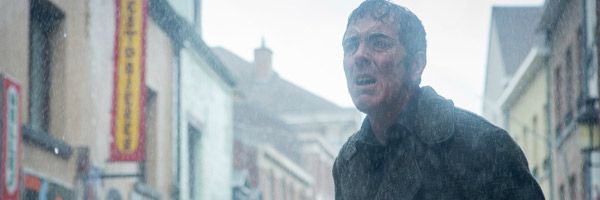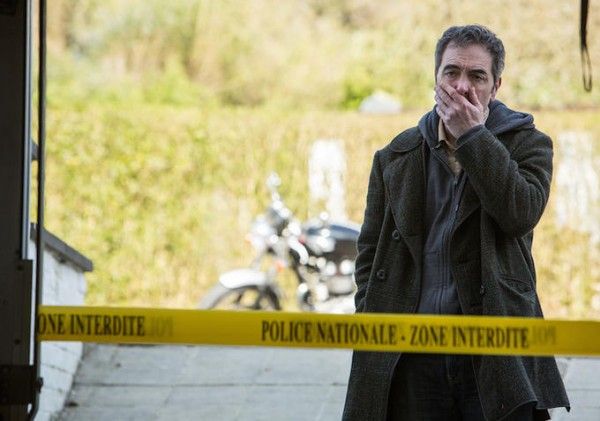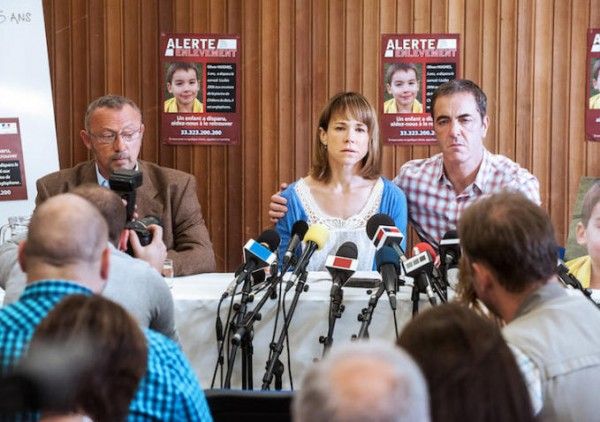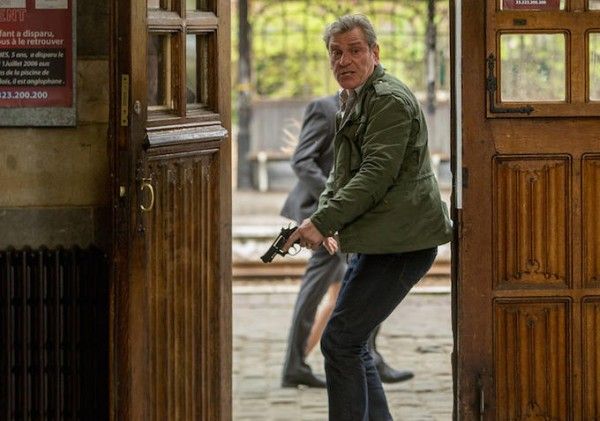In recent months, Starz has introduced a slate of both scripted (Outlander) and reality series (The Chair) that should make viewers sit up and take notice. The Missing, an 8-part miniseries collaboration with the BBC, seems poised to continue the trend. Its opening hour, "Eden," was hauntingly raw, and has set up an emotionally complex world to exist in compliment to its central mystery. Hit the jump for "the ugly truth" of Oliver Hughes' disappearance.
In the summer of 2006, during the World Cup, Oliver Hughes (Oliver Hunt) went missing. The way The Missing starts with its present-day story, 8 years after that event, casts a dark hue on flashbacks to that summer, which are otherwise candy-colored and idyllic. It also makes everyone the Hughes' meet or come into contact with a suspect, and already brings into question every decision that led to the moment Oliver was taken.
The flow of circumstances -- the car breaking down, the unexpected stay at the Hotel L'Eden, a whim to go for a late afternoon swim -- each carry with them a sense of foreboding. How different would things have been if even one choice was made in another way? That sense of connectivity, though, flows throughout the rest of "Eden," even in the current timeline: Emily (Frances O'Connor) thinks she sees Oliver, but it's actually the son of their English police liaison Mark (Jason Flemyng). It is Mark, as we know from the present day story, who she later marries (perhaps in part because his son became a kind of emotional replacement for Oliver).
While Emily has practically, though not emotionally, moved forward with her life, it is Tony (the excellent James Nesbitt) who refuses to let go. The way Oliver was separated from him at the crowded bar, with the soccer fans celebrating a goal against Brazil, was heartbreakingly real. He was there, and then, in an instant, he was gone. The weight that he lost his son continues to crush Tony unrelentingly. His first scene has him looking at a boy who would be Oliver's age, with a mixture of warmth and sadness. But even then, he carries with him a worn and haggard look.
The search for Oliver yields some potentially interesting clues, or potential red herrings (in a way reminiscent of Broadchurch, where a tragedy has a way of unraveling the secrets of everyone related to the deceased, whether or not related to the crime). The local detective Ziane (Said Taghmaoui) is pulled aside by a journalist, Malik (Arsher Ali) who blackmails him into giving details about the investigation (which he will later use and put in a tell-all book). Emily's father asks Tony if he thinks Oliver's kidnapping was because "of what we did," which Tony dismisses as "a long time ago." And of course, any man introduced in the 2006 timeline also automatically becomes a suspect: the men at the garage, men at the pool, even Ian (Ken Stott), whose wife runs the hotel. The atmosphere is desperate.
In the present timeline, the famous, now-retired detective Julien (Tcheky Karyo) is still drawn in by the case, and by Tony's dogged pursuit of clues. Tony's recently found an important one: Oliver's monogrammed scarf, which a tourist's child is photographed with. In a rare lucky break, it happened to have been sold by a second-hand shop that kept impeccable records, leading Tony and Julien to the house from whence it came. The kidnapper, it seems, could have taken Oliver there while that family was away on vacation, and the scarf ended up mixed in with their belongings. In a shocking final moment, Tony finds a drawing on the wall that Oliver did; the drawing of Tony we first saw in the first scene. Oliver was there.
There are only a few possibilities of how The Missing will play out, and there's no sense yet of what kind of series the show is setting itself up to be in that regard, or how its resolution (if there is a clear one) will play out. But what's important is that "Eden" made it clear there is no choice but to stick around and find out.
Episode Rating: A
Musings and Miscellanea:
-- As I said recently about BBC America's The Game, what I love about miniseries is that they always have such strong starts, because they have a complete sense of themselves. They don't need to try and woo viewers in for 22 episodes, or even a handful before they are possibly canceled, which just adds to the fast-paced urgency (but richness) of their storytelling.
-- The Missing's dual timeline structure has become one that's increasingly familiar in TV crime stories, but like everything it does, the show makes the conceit feel new.
-- I thought at first that The Missing was going to be like Broadchurch, where the show doesn't become beholden to the central mystery. That final scene, though, makes me think that the resolution is going to be just as important as the rest of what it reveals, though.
-- I love the way the Hughes' grief is portrayed in such different ways; Tony uses his energy in search of their only child Oliver, and makes his life about that now, whereas Emily holds it all in and smothers it, until moments like Tony calling her, or when Mark and his son bring her breakfast in bed (which was adorable).
-- I'm interested to see more about the relationship between Malik and Emily, I'm surprised she would reach out to him to go and see what Tony is up to.
-- -- The story reminds me, to some degree, of the disappearance of Madeleine McCann, a young British girl who went missing in 2007 while her family was on holiday in Portugal.
-- Such a great choice to tie the story in to the backdrop of the World Cup, especially when Tony is running through town in search of Oliver, and everyone is shouting with joy, while he is crippled by terror and pain. Also, it provided a scene in the town that would make people noticing anything unusual or different extremely unlikely.




